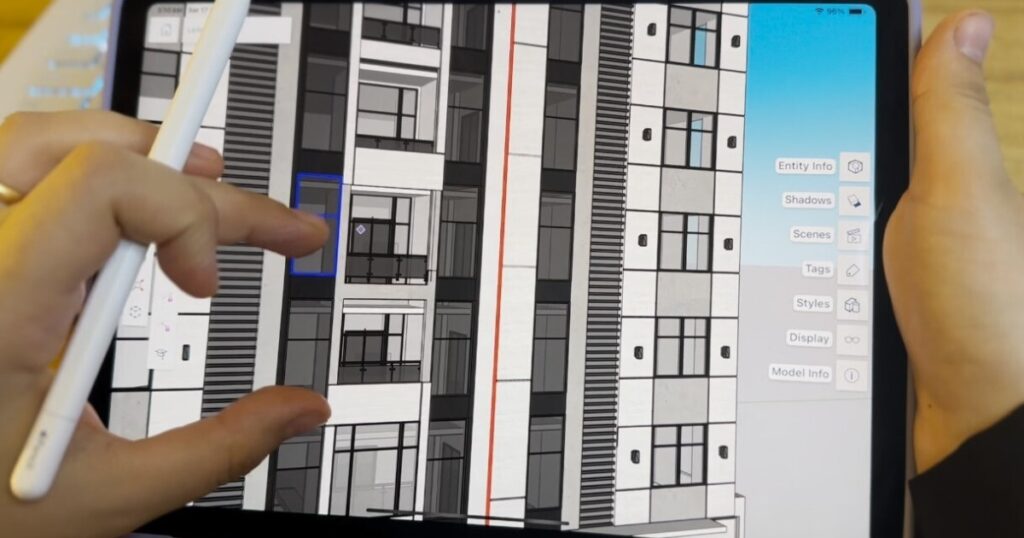Amid the devastation caused by the Israeli war on Gaza, Palestinian engineer Majd Al-Awini stands out as a pioneer in reviving hope among the people of the Strip, by redesigning the facades of homes and neighborhoods destroyed by the bombing.
With its inspiring slogan “We built it once, we will build it a thousand times,” Al-Awini presents future visions that revive hope for families who lost their homes and are looking for a glimmer of hope in reconstruction.
Al-Awini, who specializes in reconstruction and holds a doctorate in the field, is facing the growing anxiety among Palestinians about the future of Gaza after the war. Through her social media accounts, she began posting videos showing the redesign of homes whose owners had sent pictures of their destroyed homes. Their messages were similar: “What will our homes look like after the war?”
“I came up with this idea after seeing exaggerated reports about how long it would take to rebuild Gaza,” says Al-Awini. “With my experience in rebuilding after previous wars, I felt a responsibility to present alternative visions that show the real potential we have, and my goal was to spread hope among people.”
Al-Awini’s work is not limited to individual homes; her work has expanded to include designs for central neighborhoods in Gaza. Among these projects, she redesigned the Al-Rimal neighborhood, which was completely destroyed, and the Al-Najma roundabout in Rafah, which was turned into a pile of sand by Israeli bombing.
Al-Awini stresses that people’s messages did not stop at their own homes, but extended to include requests to reimagine neighborhoods and public infrastructure. “The messages reflected a real desire to see a comprehensive recovery of Gaza on a larger scale that includes all the city’s facilities,” she says.
“My goal with these visions was to present a comprehensive vision for rebuilding the city in a way that ensures its sustainability and brings life back to it, which makes people feel hopeful again,” she added.
Al-Awini’s videos went viral on her Instagram account, showing the digitally remodeled reconstruction of destroyed homes. “The videos were a ray of hope for a grieving people suffering from a lack of human justice,” Al-Awini said of people’s reactions to the videos.
Al-Awini tells the story of a letter she received from a family who had lost their entire home: “They told me: ‘We saw our house turn to ashes, but when we saw the new design, we felt hope restored.’” She adds: “This kind of interaction gives me more motivation to continue to do more.”
Al-Awini was not the only one to receive emotional reactions. Palestinian doctor Walid Al-Kahlout, who lost his home in Beit Lahia, north of Gaza, expressed his surprise and happiness when he saw the redesigned facade of his destroyed house. “Seeing the redesigned house gave us hope,” he said. “We hope the war stops so we can start rebuilding on the ground.”
Al-Awini concludes her message to the world by saying, “My message to the world is that Gaza, with the determination of its people, our faith in our abilities, and our trust in God, will rise from its ashes. No force can deter us from rebuilding our homeland and reviving the spirit of our people.”
Gaza, which has been under siege for years, has been subjected to several wars that have left widespread destruction to infrastructure and homes. With each round of bombing, a renewed question arises about the possibility of reconstruction amid economic and political challenges.
Initiatives like Al-Awini’s represent a ray of hope for the people of Gaza, helping to change the prevailing perception of the destruction and boosting their confidence in the possibility of restoring their normal lives.

